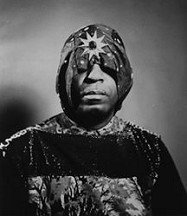
It could soon be possible to "redesign" the mosquito so that it cannot carry malaria, say European researchers. Scientists have developed a technology that allows them to modify the insects' genetic make-up.
They proved the technique by introducing a fragment of DNA that makes the mosquitoes glow green under ultraviolet light.
But the team, who report their work in the journal Nature, say it should also be possible to introduce more useful changes that prevent mosquitoes from spreading malaria.
This could be done by:
+ altering the insects' own immune system so that they cannot carry the parasite that causes malaria;
+ modifying the insects' sense of smell so that they seek out and bite animals rather than humans;
+ altering the insects in a way that would allow large-scale breeding of sterile males. These could then be released into dangerous populations to keep numbers down.
However, the scientists, including Dr Andrea Crisanti at Imperial College London, UK, say there would need to be a full political, ethical and scientific review before any such genetically-modified animals were released into the environment.
This point was emphasised by Chris Curtis, professor of medical entomology at the London School of Hygiene and Tropical Medicine.
"I think one should have concern for the remote possibility that the modifications could make the mosquitoes able to carry a virus that they cannot carry at present," he told the BBC.
"And of course one thinks about HIV. Certainly any females - only females bite - with the transgenic technology applied to them should be tested for their susceptibility to infection by dangerous viruses before they are released. Those tests could be done, and should be done."
Risks and benefits
Dr Susan Mayer of GeneWatch, which campaigns on the ethics of genetic engineering, said the risks and benefits of releasing GM mosquitoes into the wild would have to be carefully examined.
"I think as the scientists are saying these are very early stages and there is a lot more that needs to be done," she told the BBC.
"There are some very practical questions about whether you can change a population of malaria mosquitoes on a large scale, which is what you would have to do. And there will be ecological questions too.
"But malaria is an important, damaging disease and we have to find new solutions to it. This may be one way - there may be better ways. We need to take a broad look at it."
http://news.bbc.co.uk/2/hi/science/nature/800796.stm

No comments:
Post a Comment